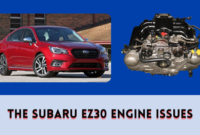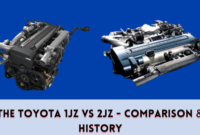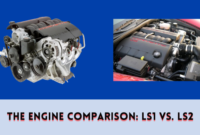The Comparison of the Nissan 350Z and 370Z. The Nissan 350Z debuted in 2003 and was produced until 2008, when it was replaced by the 370Z. The 350Z debuted with the VQ35DE engine, a 3.5L naturally aspirated V6 producing 287hp and 274lb-ft of torque. The engine received minor updates in 2006, dubbed the ‘Rev-up,’ which increased power to 300hp while decreasing torque to 260lb-ft. The engine was revised again in 2007 with the VQ35HR, and output was increased to 306hp and 268lb-ft of torque.
The 350Z was replaced by the 370Z in model year 2009. The 370Z received a larger 3.7L engine, as the name suggests, the VQ37VHR. The new 3.7L engine was based on the predecessor VQ35’s naturally aspirated V6 layout. In 2013, the 370Z received a facelift and several special trim levels, including the NISMO. The 3.7L VQ37 engine powered the 370Z until it was retired in 2020. The engine underwent a few minor design changes over the years, producing power levels ranging from 331-350hp and 269-276lb-ft of torque.
With the retirement of the 370Z, Nissan has announced plans to begin production of the new Nissan Z, a 3.0L twin-turbocharged V6, in 2022. The Nissan Z will be powered by the VR30DDTT engine, which is already found in a number of Infiniti mid-size vehicles. The 400Z nickname comes from the Z’s 400hp and 350lb-ft of torque.
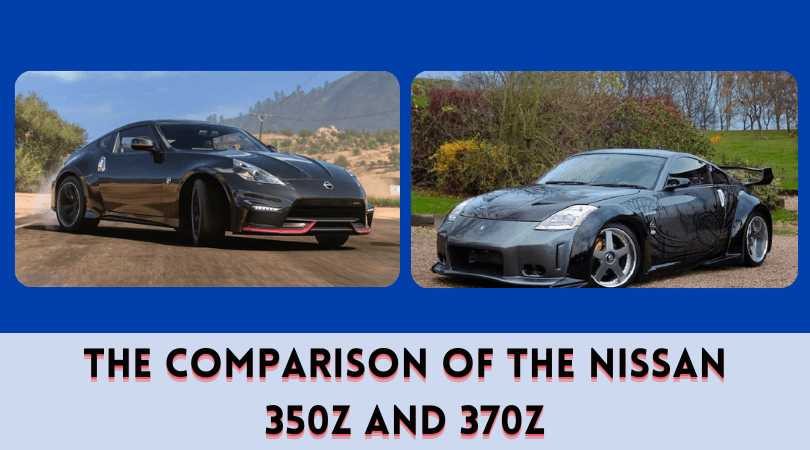
Performance Specs for the 350Z and 370Z
The following are the specifications for the Nissan 350Z vs 370Z:
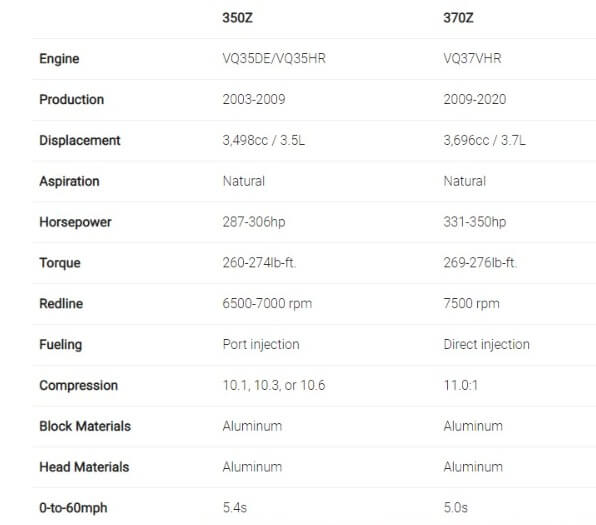
Performance of the 350Z vs. the 370Z
The biggest difference between the 350Z and 370Z in terms of performance is the 370Z’s extra 0.2L of displacement. The only other material difference is a higher compression ratio and a shift from port to direct injection.
While the torque figures are similar, the 370Z has up to 63hp more than the early model 350Z. This increased power propels the 370Z to 60 mph 0.4 seconds faster than its predecessor. Furthermore, the 370Z has a quarter mile time that is 1.0 second faster than the 350Z, which has a quarter mile time of 12.5 seconds. When measured around a track rather than in a straight line, the 370Z also wins. The 370Z’s Nurburgring time of 8:11 beat the 350Z’s 8:26 time by 15 seconds.
From a stock or baseline standpoint, the 370Z is faster in straight lines as well as around corners. However, when it comes to performance, we can’t just look at stock prices. Instead, we must consider the “tuneability” of the engines beneath the hood.
Tuning Potential of the Nissan 350Z and 370Z
Because both the VQ35 and VQ37 are naturally aspirated, neither the 350Z nor the 370Z has a significant tuning advantage. The 370Z does, however, have an advantage in terms of horsepower. Because these engines aren’t turbocharged or supercharged, simple bolt-on modifications won’t provide much power boost. Forced induction will be required to produce serious power for either of these engines.
A stock 350Z with no “rev-up” engine will dyno between 235 and 240whp. A revved-up 350z will dyno at around 250whp. A stock 370Z will dyno between 270 and 275whp.
Gains in Bolt-On Power
A 350Z with an intake, exhaust, and tune adds about 25whp, bringing the DE engines up to 260-265whp and rev-up 350Zs up to 275whp. While these are the best modifications to begin with, adding additional modifications such as throttle body spacers, pullies, a lighter flywheel, and so on can get you an extra 10whp or so out of the 350Z.
A 370Z with an intake, exhaust, and tune will gain approximately 25whp, bringing power levels to around 300whp. Not bad for $1,000 in mods, but nothing when compared to adding full bolt-ons to a forced induction engine.
Finally, spending $1,000 on mods for the 370Z will get you around 300whp, whereas reaching 300whp on a 350Z with cams and all of the other mods listed is unlikely. For rev-up engines, 350Zs will produce around 295-300whp, and achieving these levels will necessitate a few thousand dollars in additional modifications.
The Nissan 350Z vs. the Nissan 370Z with Forced Induction
If you’re thinking about getting a forced induction system, check out our ultimate 350Z turbo upgrade guide. The subject of forced induction is difficult. Power levels vary greatly depending on the setup chosen. We’ll go over the power limits of each of these engines, as well as the costs associated with exceeding them. You can make a 350Z or 370Z faster than 99.9% of cars on the road if you’re willing to spend the money, but this requires tens of thousands of dollars in mods, so we’ll stick to stock motor limits.
The 350Z’s VQ35 engine can produce around 450-500whp before major internal upgrades are required. When you reach these levels, you should consider upgrading your pistons, rods, cams, and ported heads. Furthermore, with the addition of forced induction, you will require fueling upgrades as well as possibly some cooling upgrades. There are a few 350s that produce 700whp or more, but this requires a fully built engine.
The 370Z’s VQ37 engine can produce 500-550whp with the stock block and internals. Fully built 370Zs have exceeded 1000whp to give you an idea of what they’re capable of. As with the 350Z, even reaching 500whp will necessitate a significant investment in additional modifications beyond the turbo kit. Most modest turbocharger setups will push the 370Z to 500whp before seriously compromising reliability.
Overall, the 370Z has about 50whp more power than the 350Z with the same modifications. The costs to turbocharge the two are very similar, so when tuned with forced induction, the 370Z has more power potential. This is primarily due to the VQ37’s higher starting horsepower over the VQ35.
Related : The Top 4 Ford 5.4L Triton V8 Engine Issues
Reliability of the 350Z vs. the 370Z
The 350Z’s VQ35DE and VQ35HR engines are both extremely dependable. We discussed the most common 350Z problems in our VQ35 common problems post. Oil leaks, timing chain failure, and oil consumption were all on the list. Excessive oil consumption isn’t a big deal as long as you keep oil levels high, and oil leaks are common with most high-mileage vehicles. The only frightening issue on the list is timing chain failure. However, the timing chain on the 350Z usually lasts well beyond 100,000 miles before it fails.
The 350Z is extremely reliable up to 100,000 miles and remains so until it reaches 200,000 miles. As is customary with high mileage, various maintenance issues arise. This kind of mileage cannot be expected without some general maintenance such as water pumps, spark plugs and coils, and so on. However, when left alone, these engines are quite reliable. Of course, adding more power will have an impact on reliability, especially in high mileage 350Zs.
The 370Z shares many of the same flaws as the 350Z. It is also timing chain driven, which increases the possibility of failure, though this is uncommon until you reach 150,000 miles. The VQ37 is also prone to excessive oil consumption, but this isn’t a cause for concern. According to our observations, the 370Z is also very reliable up to 200,000 miles.
In terms of engine reliability, both the Nissan 350Z and 370Z are highly reliable. The 350Zs are obviously all at least 13 years old at this point, whereas some of the 370Zs are only a year old. Age is a significant factor in dependability. Cars become more problematic as they age. While these engines are comparatively equally reliable, a 15-year-old 350Z will require significantly more money in the form of routine maintenance.
Is the 370Z Superior to The 350Z?
The 370Z is more powerful, just as dependable, and a year newer. Furthermore, it can generate more power with the same amount of mod $ invested. The 370Z is faster in both straight lines and around a track. So, according to conventional wisdom, the 370Z is superior to the 350Z.
However, the cost of the two must be considered. A sub-100k mile 350Z can be found for $10k-$15k from a dealer, and for less than $10k from a private seller. Even for an older 370Z, prices start around $20k, with newer, low mileage models costing more than $30k.
You could buy a 350Z for $10,000 and install a 450whp turbocharger setup for the same $20k as a stock 275whp 370Z. So, while the 370Z is superior on a stock-to-stock basis, it may not be the best option for someone looking for a fun, powerful, and affordable car. Furthermore, the availability of already modded discount 350Zs is much greater.
So, which is superior? It all depends. It all depends on your budget, your power goals, how you intend to use the car, and so on. I believe the 350Z is more popular these days due to the low entry cost and availability of used turbo kits and other mods.
What do you think about the Nissan 350Z vs. 370Z?




